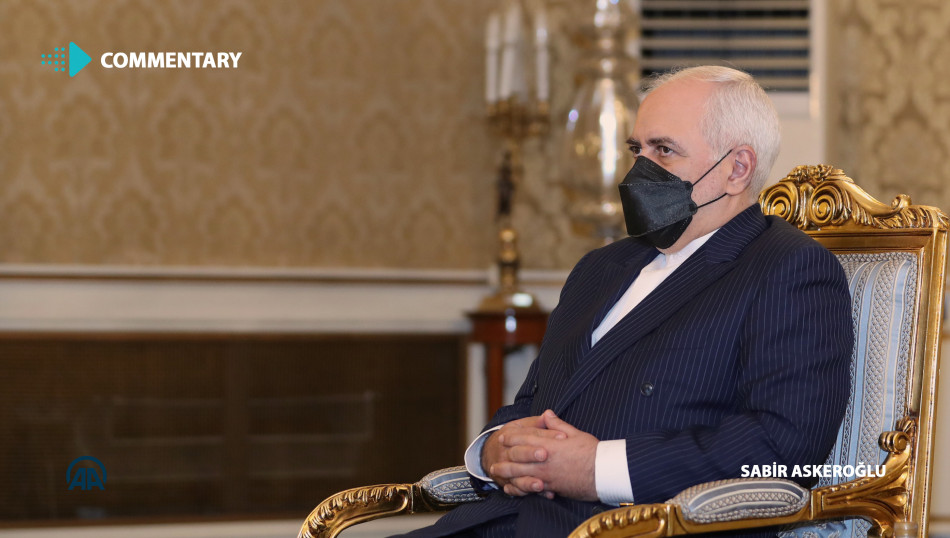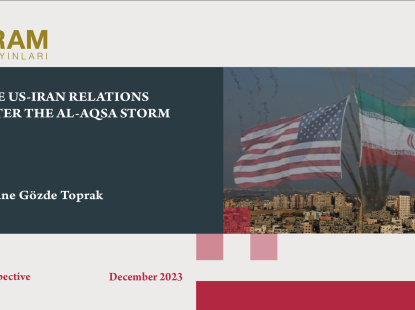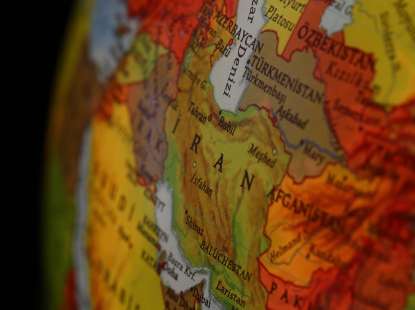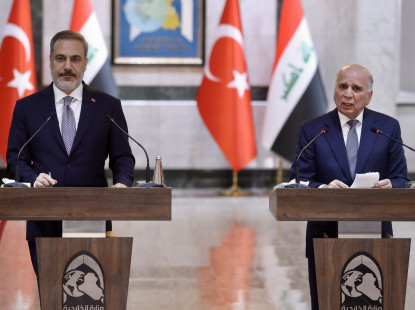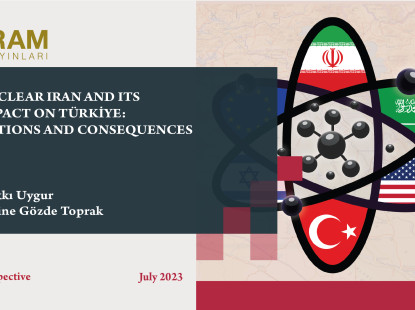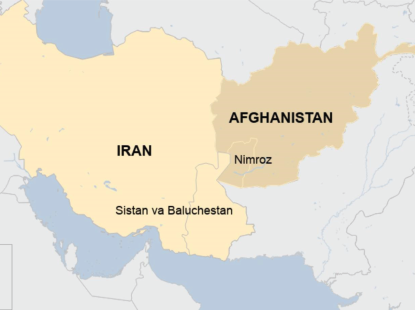Zarif’s Accusation of Moscow and Russia’s Reaction
An audio recording of Iranian Foreign Minister Javad Zarif’s conversation with Iranian economist, Saeed Laylaz, was leaked to Iran International on April 26, raising new controversy.
In his statements in the audio recording, Zarif focused on two important problems that he had faced. The first was concerned with the rivalry between institutions in Iran’s domestic politics. Zarif had stated the Commander of Iran’s Islamic Revolutionary Guard Corps’ (IRGC) Quds Force, General Qasem Soleimani, who was killed in January 2020, interfered with the Ministry of Foreign Affairs of Iran and sometimes made decisions on foreign policy without the knowledge of Zarif.
The second important issue Zarif focused on was Russia. Zarif was criticizing Moscow, saying Russia was trying to break the Nuclear Deal. Zarif used the following statements: "In the final phase of the signing of the 2015 Nuclear Deal, Moscow sought to sabotage the Joint Comprehensive Plan of Action (JCPOA). Because the rapprochement between Iran and the United States was contrary to Russia’s interests. A week after the signing of the Nuclear Deal, Soleimani was invited to Moscow on the initiative of Russia. It was not Soleimani who dragged Russia into the war in 2015. On the contrary, Russia made Iran get involved in the Syrian Civil War. The Syrian War was damaging Iran’s relations. The Russian Air Force began using the airbase in Iran. All this was to sabotage the Nuclear Deal”.
Zarif’s remarks were an uncomfortable one for Moscow, which said it was making great efforts to achieve the Nuclear Deal and advocated for Iran to have its peaceful nuclear program. While there is no explanation from the Russian official authorities regarding Zarif’s remarks, it has found vast repercussions in the Russian media, academia and experts community.
Kommersant newspaper, one of the leading media organizations, published an assessment article with the headline “Iranian Foreign Minister blamed Russia for Iran’s Problems.” Kommersant included the statements of a diplomat who attended the 2015 Vienna talks. According to the diplomat, although Russia had serious problems with Western countries due to the Ukraine crisis at that time, its efforts to sign the Iran Nuclear Deal stunned the American delegation.
In an article entitled “Internal fighting in Iran also touched Russia”, the government-owned Vzglyad newspaper said that Iran’s criticism of Moscow is not new and reminded that in 2016, the then Defense Minister, Hossein Dehghani, also criticized Russia for using Iran’s airbase. The opposition "Nezavisimaya Gazeta", on the other hand, wrote the expression "a sign of accumulated resentments" regarding Zarif’s statement in its article titled “Moscow finds itself at the center of the Iranian Inter-institutional war.” Gazeta.Ru., one of the other leading media organizations, published its assessment with the heading “Mandatory Partnership: Iranian Foreign Minister accused Russia of unfriendly behavior.”
Yuliya Sveshnikova, an adviser at the PIR Analytical Center, criticized Zarif’s remarks and said, “The Iran-US rapprochement which Russia has allegedly tried to prevent could not happen in a day. The problem between the US and Iran is not just the nuclear issue as well. Furthermore, Russia has its own interests in signing the Nuclear Deal.”
Anton Hlopov, head of the Center for Energy and Security, said, “Moscow and Tehran did not always agree on Nuclear talks. The reason for this was that Iran violated its obligations under the IAEA. Russia, as a permanent member of the UN Security Council, on the other hand, was responsible for compliance.” Yevgeny Satanovsky, President of the Institute of the Middle Eastern Studies, also stated that “Although Russia-Iran relations will change over time, this will not be caused by leaked statements of Zarif.”
Commenting on the issue, Russia’s former ambassador to Tehran, Aleksander Maryasov, blamed the West. Maryasov commented that the West likes to exaggerate that there is a conflict of interest between Iran and Russia and that they are in cooperation and coordination in Syria, although they have some differences of opinion.
According to Iran expert Nikita Smagin, Russia and Iran have both viewed each other with suspicion. They avoided the alliance relationship and focused on the rhetoric of “strategic partnership". However, in general, they have been pragmatic and have deepened their cooperation day by day. Military expert Yuri Lyamin also made a similar assessment, noting that Zarif’s statements would not harm Russian-Iranian relations, the Rouhani’s government would soon change, and bilateral relations have already been conducted by higher authorities than the Foreign Ministry.
As a result, there is a consensus in Russia that Zarif’s remarks are aimed at domestic politics. The idea is that there would be no serious break in bilateral relations due to the end of the Rouhani government’s office is dominant. However, on the other hand, it can be said that Zarif’s remarks have disturbed Moscow in terms of denying the Kremlin’s claims regarding the Nuclear Deal.
